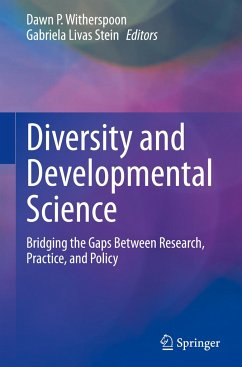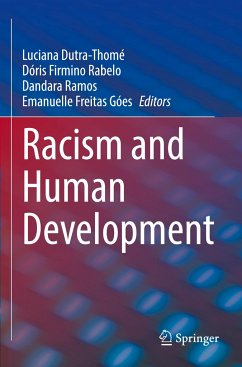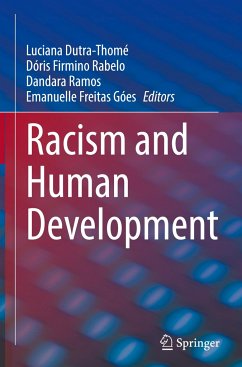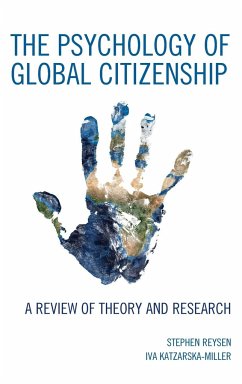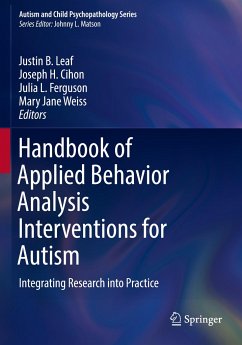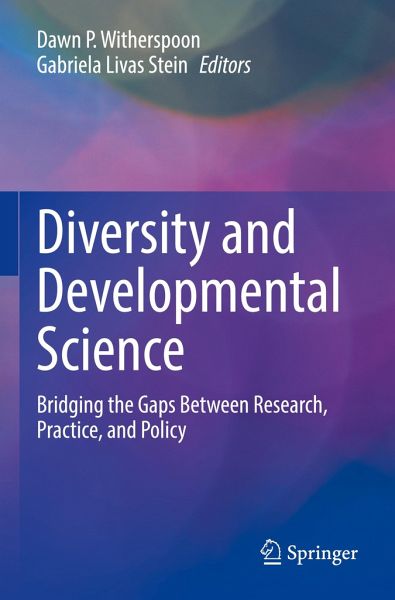
Diversity and Developmental Science
Bridging the Gaps Between Research, Practice, and Policy
Herausgegeben: Witherspoon, Dawn P.; Stein, Gabriela Livas
Versandkostenfrei!
Versandfertig in 6-10 Tagen
121,99 €
inkl. MwSt.

PAYBACK Punkte
61 °P sammeln!
This book examines the challenges faced by developmental scientists as the population under the age of 18 in the United States has become a majority-minority, with no racial/ethnic group having a numeric majority. The volume tackles how these demographic shifts compel scientists to consider the unique and universal processes that promote the growth, thriving, and resilience of these populations across this new landscape and also takes into account systems of oppression, power, privilege, racial justice, and structural disadvantage. It describes the challenges of conducting research with divers...
This book examines the challenges faced by developmental scientists as the population under the age of 18 in the United States has become a majority-minority, with no racial/ethnic group having a numeric majority. The volume tackles how these demographic shifts compel scientists to consider the unique and universal processes that promote the growth, thriving, and resilience of these populations across this new landscape and also takes into account systems of oppression, power, privilege, racial justice, and structural disadvantage. It describes the challenges of conducting research with diverse populations and offers practical methodological solutions.
The book provides an overview of the current demographic shifts and their implications for developmental researchers. It examines key diversity science constructs that need to be considered for all developmental research within this new global context in which societies are becoming more diverse. In particular, chapters address how to measure and conceptualize these constructs using within-group designs as well as research that includes youth from multiple backgrounds. In addition, the volume focuses on the contexts that shape the developmental trajectories of youth and how best to capture these contexts with an eye toward diversity science.
Key areas of coverage include:
Identifying best practices in the conceptualization and measurement of race and ethnicity in developmental science at the individual and contextual levels. Stimulating a dialogue that translates to an actionable agenda designed to tackle issues of conceptualization and measurement of key constructs associated with race/ethnicity.Leading-edge strategies for building interdisciplinary teams to conduct ethical and responsible work with diverse populations that include scholars of color.
Finally, the book addresses translational work, including how the incorporation of diversity sciencecan influence policy and help build collaborative research teams that are well-poised to conduct ethical research in these diverse populations. The volume provides recommendations for researchers to incorporate diversity science into their work.
This book is a must-have resource for researchers, professors, clinicians, therapists and other professionals as well as graduate students in developmental, clinical child, and school psychology, public health, ethnic studies, counseling, anthropology, African American/Black Studies, Latinx/Latino/Chicano Studies, and Asian American Studies.
The book provides an overview of the current demographic shifts and their implications for developmental researchers. It examines key diversity science constructs that need to be considered for all developmental research within this new global context in which societies are becoming more diverse. In particular, chapters address how to measure and conceptualize these constructs using within-group designs as well as research that includes youth from multiple backgrounds. In addition, the volume focuses on the contexts that shape the developmental trajectories of youth and how best to capture these contexts with an eye toward diversity science.
Key areas of coverage include:
Identifying best practices in the conceptualization and measurement of race and ethnicity in developmental science at the individual and contextual levels. Stimulating a dialogue that translates to an actionable agenda designed to tackle issues of conceptualization and measurement of key constructs associated with race/ethnicity.Leading-edge strategies for building interdisciplinary teams to conduct ethical and responsible work with diverse populations that include scholars of color.
Finally, the book addresses translational work, including how the incorporation of diversity sciencecan influence policy and help build collaborative research teams that are well-poised to conduct ethical research in these diverse populations. The volume provides recommendations for researchers to incorporate diversity science into their work.
This book is a must-have resource for researchers, professors, clinicians, therapists and other professionals as well as graduate students in developmental, clinical child, and school psychology, public health, ethnic studies, counseling, anthropology, African American/Black Studies, Latinx/Latino/Chicano Studies, and Asian American Studies.





